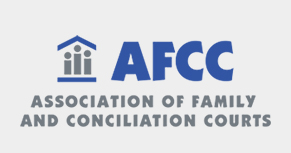.jpg)
Maintaining a good relationship with one’s children is difficult and takes daily effort even when parents are consistently working together. Daily struggles of life plus unresolved conflicts in the relationship between parents put an additional strain on parent-child relationships. Many parent-child relationships actually improve after a marital or cohabiting separation and divorce. The whole experience of parenting time tends to bring a lot more focus and value to the time parents and children have together. What happens when parents and children are apart has big impact upon their time together as well, particularly when parents struggle communicating with each other. One struggle in this context is how information is shared between homes. The parent who has a little notebook to keep track of information important to each child is less likely to ask when talking about a child’s friend, as one possible example- “What is her name again” for the third time. Children need to know the parents are paying attention. Their favorite movies, foods, activities, relationships and more will change on a regular basis. That’s why it’s so important to keep asking and listening. And writing it down helps.
The parent who puts deliberate effort and planning into their time with their children will find a way through the journey of creating a new kind of family. A “family journal” is a bit like a family photo album with a few extras. The family journal concept is as individual as the lives they chronicle. A few photographs of the fun we had last weekend or the vacation provide the central focus. Children can add their own notes. What we liked or didn’t like about our time together is valuable as well. For example, one of the hardest skills for a single father to develop is to build a relationship in which his daughters will be honest with him about their fears and concerns. The family journal in practice becomes a way for children to find their voice about their time with Mom or Dad. Spending time together in the family journal documenting lives together and planning for the future can keep families from getting to Saturday morning and asking, “What do we want to do this weekend?” A third of the weekend is gone before it even started. Having three categories for planning family time together is a good place to start: around home, nearby, and big events. The third is the stuff that requires more planning like the overnight travel or the annual vacation.
In summary family journaling can help combat many of the risks to starting a “new” family structure. Not only does it help minimize the need to rely on a co-parenting relationship that is adjusting as well, but it provides a ritual for consolidating time spent and family planning. This can help bring children closer to their parents during their own adjustment, and improve the quality of the time they have together.
How parents respond to each other and navigate their own reaction to divorce has a big impact on how they will function as single parents. Will they jump into another relationship on the rebound to cope with separation? Or will they move through the pain of loneliness? Children need their parents to understand their pain. How parents navigate this experience will shape the child’s life for decades to come. What a parent tells themself about their divorce has a lot to do with how available they will be to their child’s grief and loss. The guilt, shame, and anger we carry about the divorce can not only cripple our own life but that of our children as well. Anger turns into unresolved conflict. Up or down, such conflict between parents is the single most reliable predictor of how well family members will adjust to their parent’s divorce. Children can and eventually do thrive after divorce provided parents are able to find the weird but workable experience of co-parenting. In addition, adjustment to divorce and separation can be helped by developing new routines and traditions that focus on family. This can help children adjust, and support healthy parent-child relationships in the process.
Maintaining a good relationship with one’s children is difficult and takes daily effort even when parents are consistently working together. Daily struggles of life plus unresolved conflicts in the relationship between parents put an additional strain on parent-child relationships. Many parent-child relationships actually improve after a marital or cohabiting separation and divorce. The whole experience of parenting time tends to bring a lot more focus and value to the time parents and children have together. What happens when parents and children are apart has big impact upon their time together as well, particularly when parents struggle communicating with each other. One struggle in this context is how information is shared between homes. The parent who has a little notebook to keep track of information important to each child is less likely to ask when talking about a child’s friend, as one possible example- “What is her name again” for the third time. Children need to know the parents are paying attention. Their favorite movies, foods, activities, relationships and more will change on a regular basis. That’s why it’s so important to keep asking and listening. And writing it down helps.
The parent who puts deliberate effort and planning into their time with their children will find a way through the journey of creating a new kind of family. A “family journal” is a bit like a family photo album with a few extras. The family journal concept is as individual as the lives they chronicle. A few photographs of the fun we had last weekend or the vacation provide the central focus. Children can add their own notes. What we liked or didn’t like about our time together is valuable as well. For example, one of the hardest skills for a single father to develop is to build a relationship in which his daughters will be honest with him about their fears and concerns. The family journal in practice becomes a way for children to find their voice about their time with Mom or Dad. Spending time together in the family journal documenting lives together and planning for the future can keep families from getting to Saturday morning and asking, “What do we want to do this weekend?” A third of the weekend is gone before it even started. Having three categories for planning family time together is a good place to start: around home, nearby, and big events. The third is the stuff that requires more planning like the overnight travel or the annual vacation.
In summary family journaling can help combat many of the risks to starting a “new” family structure. Not only does it help minimize the need to rely on a co-parenting relationship that is adjusting as well, but it provides a ritual for consolidating time spent and family planning. This can help bring children closer to their parents during their own adjustment, and improve the quality of the time they have together.





